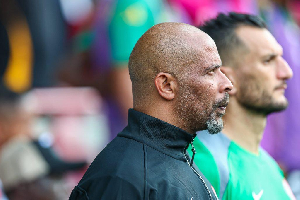General News of Thursday, 28 August 2025
Source: www.mynigeria.com
Meet Nigerian extremist rich kid who tried to blow up a plane
In the bustle of Lagos on a December day in 1986, a child was born into privilege. Umar Farouk Abdulmutallab, the youngest son of a wealthy Nigerian banker and former government minister, came into a household of sixteen children. His father’s world was one of politics, international banking, and influence. His mother’s Yemeni heritage tied him to the old Islamic traditions of the Arabian Peninsula. From the beginning, he lived between two worlds: modern prosperity and deep religious devotion.
As a boy, Farouk was quiet, dutiful, and pious. At the Rabiatu Mutallab Institute, his family’s own Quranic school, teachers remembered him as the boy who prayed more often and more fervently than others. Neighbours noticed his politeness, his shyness, and his eagerness to please. He was the one who never broke the rules.
At fifteen, he left Nigeria for the British International School in Togo. There, among children of diplomats and business elites, his reserve deepened. While his classmates talked of parties, fashion, and plans abroad, Farouk spoke of faith. After the September 11 attacks, while the world recoiled in horror, he was one of the few who tried to argue in defence of the Taliban. Friends dismissed it as the zeal of a boy too sheltered, too serious for his age.
In 2005, London became his new home. At University College London, he studied mechanical engineering and business finance, but even here, he remained apart. He rarely went to clubs or parties, preferring the company of fellow Muslims. As president of the Islamic Society, he organised lectures and debates about the West’s wars in the Middle East. He gained respect but little warmth. He was known more for his fervour than his friendships.
After graduating in 2008, his search for a sense of belonging grew restless. In Yemen, he enrolled at an Arabic institute, then drifted to lectures at Iman University, known for attracting radicals. It was there, investigators later said, that he found mentors who spoke with the certainty he craved. Men like the preacher Anwar al-Awlaki gave shape to his questions and sharpened his anger at the West.
By 2009, his worried father could sense the change. When Farouk disappeared into Yemen’s shadows, refusing to answer family calls, Umaru Mutallab walked into the U.S. Embassy in Abuja. He warned officials that his son had fallen in with extremists. But the warning was lost in bureaucracy, and Farouk carried on unnoticed.
On Christmas Day of that year, he boarded Northwest Airlines Flight 253 from Amsterdam to Detroit. Hidden in his underwear was a packet of PETN explosives, enough, if detonated properly, to rip open the fuselage of the plane and kill nearly three hundred passengers. As the jet descended, he tried to ignite the device. Instead of an explosion, there was only a flash, the smell of burning cloth, and a sudden fireball near his seat. Passengers screamed. A Dutch filmmaker leapt across the aisle and pinned him down. By the time the plane landed, Umar Farouk Abdulmutallab was badly burned, subdued, and in handcuffs.
His trial in Detroit captured headlines. At first, he pleaded not guilty. Later, standing in the courtroom in October 2011, he calmly admitted to all eight charges: attempted murder, attempted use of a weapon of mass destruction, and conspiracy with al-Qaeda. In February 2012, Judge Nancy Edmunds sentenced him to four life terms plus fifty years, without the possibility of parole. He showed no regret, telling the court he was proud of his actions.
Years later, in 2014, an appeal claiming cruel and unusual punishment was rejected. Judges described him not as a manipulated boy but as a man who made deliberate, calculated choices. Today, he sits in solitary confinement at ADX Florence, the U.S. supermax prison in Colorado, a facility designed to swallow men whole, where even the walls seem to silence the inmates.
Yet his story does not end in total isolation. Twice a month, from behind the concrete and steel, he calls his family in Nigeria. His mother has visited. His father, now ageing, has said in interviews that he hopes to see his son once more before he dies.
Shared on X by @mikecokere












